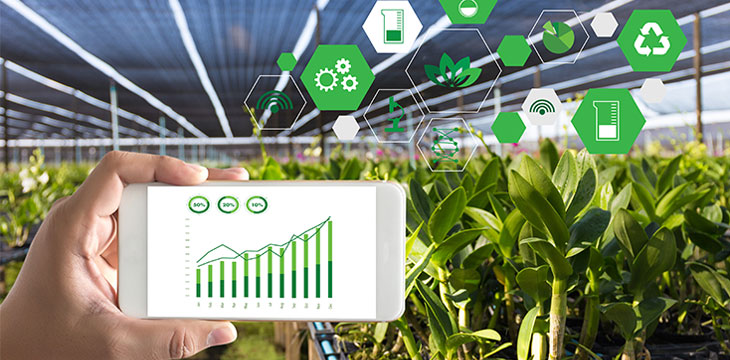|
Getting your Trinity Audio player ready...
|
Several multinational agricultural companies are collaborating to find ways to use blockchain and other technologies to improve transparency and efficiency.
Archer Daniels Midland Company (ADM), Bunge Limited, Cargill, Incorporated, and Louis Dreyfus Company (LDC), announced in a press release that they would be focusing on “technologies to automate grain and oilseed post-trade execution processes, as they represent a highly manual and costly part of the supply chain, with the industry spending significant amounts of money every year moving documents around the globe.”
Beyond this, the companies, which collectively employ over 200,000 people worldwide, will be looking at replacing manual, paper-based processes used for the fashioning of contracts, invoices, and payments. By doing so, the projected benefits include improved quality, transfer speeds, and reliability of documents and data; more transparency throughout the supply chain; and greater compatibility with other digital systems. No amount of investment was stated for the venture.
ADM CEO Juan Luciano said, “By working together to design and implement a digital transformation, we will bring hundreds of years of collective knowledge and experience to simplify processes and reduce errors for the benefit of the entire industry.”
The joint statement noted that LDC had already begun last January to conduct commodity transactions with blockchain, “which showed the technology’s capacity to generate efficiencies and reduce the time usually spent on manual document and data processing,” according to LDC CEO Ian McIntosh.
Bunge CEO Soren Schroder said, “We expect an industry-wide initiative of this nature to be able to accelerate improvements in data management and business processes, and bring much-needed automation to the industry.”
Cargill CEO David MacLennan said, “Agriculture has always been a technology industry. Farmers and our customers expect us to deliver innovations that make them more efficient, effective and profitable.”
It was previously reported that Oxfam International was launching a blockchain project, Blocrice, to assist farmers in Preah Vihear, Cambodia, by providing them with information such as prices and trade volume, so as to let them sell more directly to end-users.
China’s state-owned Agricultural Bank of China has begun to use blockchain to aid the sector, but for the streamlining of the loan approval process rather than improving supply chains.

 03-01-2026
03-01-2026 




